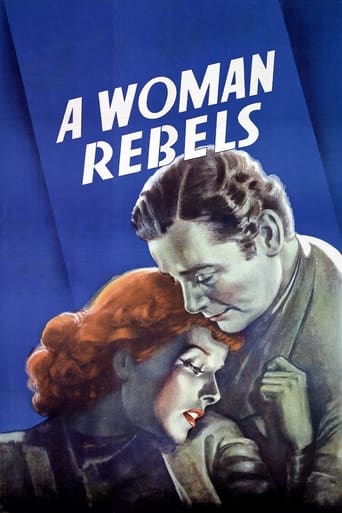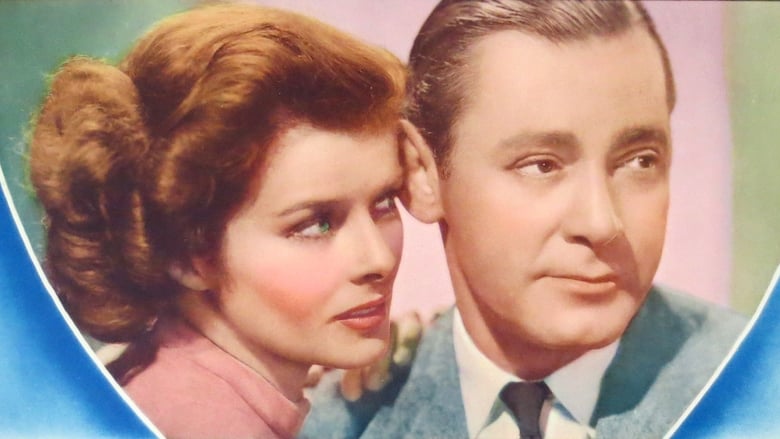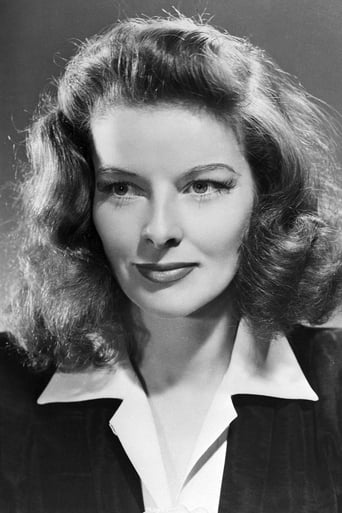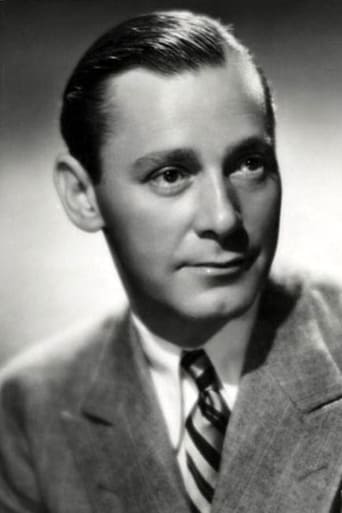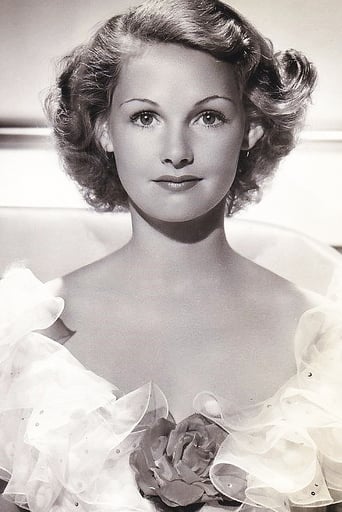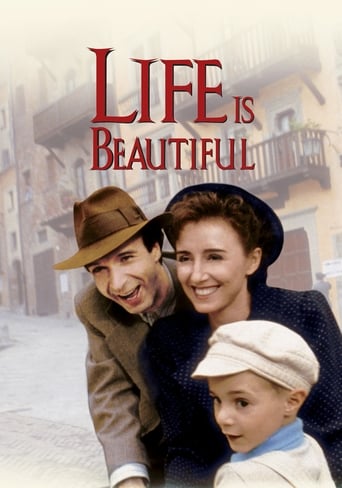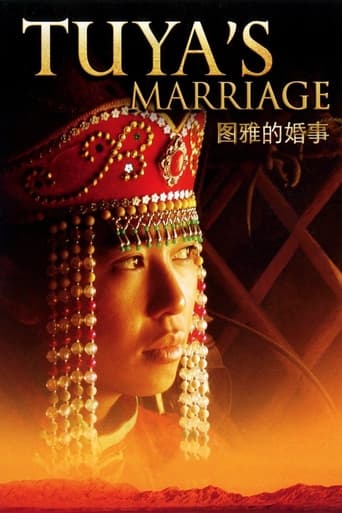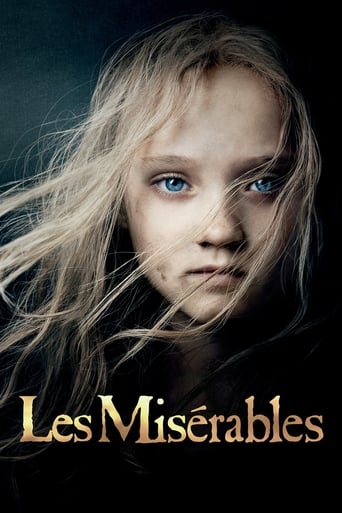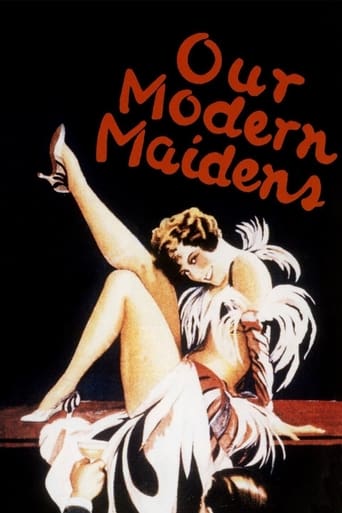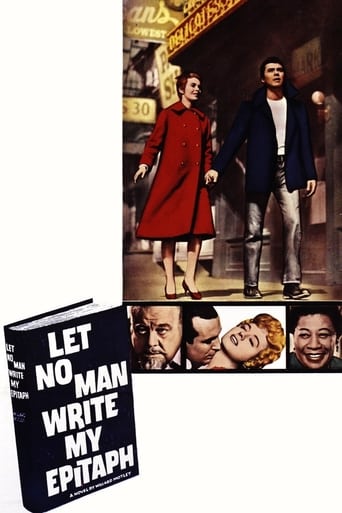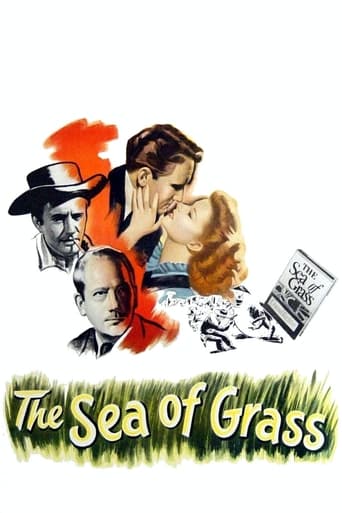A Woman Rebels (1936)
A Victorian-era woman struggles to break free of the moral codes established by society and enforced by her father.
Watch Trailer
Free Trial Channels
Cast


Similar titles
Reviews
Too many fans seem to be blown away
Disturbing yet enthralling
At first rather annoying in its heavy emphasis on reenactments, this movie ultimately proves fascinating, simply because the complicated, highly dramatic tale it tells still almost defies belief.
Amazing worth wacthing. So good. Biased but well made with many good points.
A WOMAN REBELS (RKO Radio, 1936), directed by Mark Sandrich, from the novel "Portrait of a Rebel" by Netta Syrett, offers Katharine Hepburn the type of role most suited for both her talents and personal interests, that of a feminist fighting for equal rights. Rather than a biography about early fighters of the feminist movements as Virginia Wolfe or Susan B. Anthony, A WOMAN REBELS takes a look at a fictional character named Pamela Thistlewaite.The story, set in "England, the middle of the Victorian era," introduces Pamela Thistlewaite (Katharine Hepburn), and her younger sister, Flora (Elizabeth Allen), living in Gideon Gray estate with her widowed father, Judge Thistlewaite (Donald Crisp) and humble Aunt Betty Bumble (Lucile Watson). Tutored by their governess, Piper (Eily Malyon), Pamela, with her thirst for knowledge, questions authority to why "women are inferior to men." Because of her outspokenness towards her disciplinarian father ("If you are unjust as a father, you must be equally unjust as a judge"), Thistlewaite decides to have his daughters introduced to society where they are to meet young men as prospect husbands. During a gathering, Flora meets and falls in love with sailor, Captain Alan Craig Freeland (David Manners), whom she marries and settles to Italy. As for Pamela, she encounters Gerald Waring Gaythorne (Van Heflin) with whom she becomes interested. Meeting secretly in England at Madame Tussand and Sons Exhibition Wax Works, they eventually have an affair before Pamela learns too late that Gerald is married. Keeping her pregnancy a secret, Pamela, accompanied by Aunt Betty, takes time away visiting with Flora, also expecting a child. While at her residence, Pamela meets Alan's guest for the weekend, Thomas Lane (Herbert Marshall), with whom Pamela becomes good friends. When Flora later learns Alan has been killed in an explosion at sea, the shock causes her to lose both her child and life. Raising her daughter as Flora's child, Pamela returns to England where she breaks all barriers by seeking employment. She finally lands one at Ladies Weekly Companion where she submits articles to William C. White (Lionel Pape), her publisher. After meeting with a young woman (Molly Lamont) struggling through life with a baby and no husband, Pamela, who sees herself in this girl, takes a stand by writing articles on woman's suffrage titled "Shame of Civilization" to instant success. While Lane wants Pamela as his wife, she turns him down so not to have her past ruin his political career. Years later, as her "niece" grows to womanhood, young Flora (Doris Dudley) meets and falls in love with a young man part of Pamela's hidden past, later leading to a scandalous trial.Considering the many novels and motion pictures bearing the theme of women birthing children out of wedlock and raising it as a child of another, A WOMAN REBELS offers nothing new in that regard, yet it's a wonder why it didn't prove successful at the box office. Weak scripting/ unsatisfactory conclusion, perhaps. Dreary underscoring, maybe. Time period? Not quite. Three years later, Bette Davis starred in THE OLD MAID (Warner Brothers, 1939) bearing a similar theme in same basic era, this time on American soil during and after the Civil War, resulting to something much better and highly effective. Hepburn, most noted for costume dramas as LITTLE WOMEN (1933) and THE LITTLE MINISTER (1934), was facing a career slump by this time, following previous failures as SYLVIA SCARLET (1935) and MARY OF Scotland (1936) to her name. While Hepburn's first mother role might or should have shown great promise, it only added insult to injury to being her third flop in a row.Of the Hepburn flops, A WOMAN REBELS, one of her lesser known and discussed projects from the 1930s, is actually better to some extent, with honorable mention to Donald Crisp's forceful performance of a cold-hearted, stern father treating his children with indifference because they're females. David Manners, Hepburn's love interest in her screen debut of A BILL OF DIVORCMENT (1932), has little to do in his final movie role. For Van Heflin and Doris Dudley (who sometimes resembles Joan Fontaine), both in film debut performances, only Heflin, given the film's most memorable line, "Hatred can hold two people together more stronger than love," went on to become as a accomplished actor with Academy Award best supporting win to his name in the 1940s. According to Bob Dorian, former host of American Movie Classics, where A WOMAN REBELS aired regularly prior to 2000, Hepburn wore 22 different Walter Plunkett designed costumes covering the Victorian England era (1860s to 1890). Costumes may have been the fashion for Hepburn, but its authentic historical Victorian-era setting gives this another plus. While Hepburn was allowed to age through the process, the make-up department avoided the common overplay of white hair and extended wrinkles over a more natural approach. Herbert Marshall, who comes late into the story, makes a satisfactory suitor who claims, "These modern women are so weak." Elizabeth Allan's meek sister role, though small, equally balances that of Hepburn's forceful manner.Once available on video cassette through Blackhawk Video in the 1980s and currently on DVD through the TCM Archive Collection, A WOMAN REBELS can be found whenever shown on Turner Classic Movies. (**1/2)
Katharine Hepburn did "A Woman Rebels" in 1936, when she was under contract to RKO Studios. She had a string of not so successful films prior to this, although made a sensational debut in "Bill of Divorcement" in 1932 and the wonderful "Alice Adams" in 1935. Hepburn basically plays herself here, all theatrical mannerisms and that light, slightly shrill voice. We are not so sure how to take the character of Pamela, although we guess from the title she will make some sort of stance for women's rights, circa mid-1800's; and indeed she does. Donald Crisp has a nice turn as her cold dominating father, and a young Van Heflin as one of Pamela's suitors is barely recognizable. Herbert Marshall is good as the man who loves Pamela through many decades. The soap suds are laid on pretty thick, and the film is not one of Hepburn's more memorable films. Still, for true Hepburn fans, it is always good to watch her in the earlier days. Fortunately for Hepburn, better roles were ahead in the decades to come. Hepburn leaving RKO was the best thing she did for her career.
*Spoilers*With a tempting cast of Kate Hepburn and Herbert Marshall, and a strong title to boot, this movie was a frustrating disappointment. The actors seemed cast adrift in a ship without a rudder. "Woman Rebels" was shown as part of the recent TCM special on Kate Hepburn's birthday, with early pre-code movies from the 30's and 40's, when she was already in her mid-twenties, and it followed the 1933 Dorothy Arzner classic "Christopher Strong." Now THAT is a movie with a solid script and a director who knew what she wanted to say and what to do with her stars. It's no accident that the director was a woman.In "Woman Rebels," the story, which is pretty simple but appears to have been written by committee (three writers are credited), still left certain details dangling, such as why does her stern and unforgiving father (Donald Crisp, here woefully underused and misdirected) appear only in the beginning and inexplicably at the end? or exactly whose baby was she raising, and why aren't we(or she) clear about it? Or take the casting; besides the principals, Hepburn's "daughter" is played by an actress (Elizabeth Allen) who, when grown up, looks older than her aunt (Hepburn) who is supposed to be twenty years her senior. That bothered me constantly. As for Herbert Marshall, he is given a simpering one-dimensional role, supposedly of a diplomat, that relegates him to merely standing in the wings commiserating, while Kate does her "rebelling" by running her newspaper and commenting on social issues. The latter is all well and good, but the context is so limited, and the supporting roles all so weak that we are pained to watch her.One wonders how Hepburn accepted this role after putting in such a sterling performance at age 26 (and only her second film) for Arzner in "Christopher Strong." That movie should have been named "A Woman Rebels," instead of giving the title, as others have noted, to Kate's love interest-- her friend's father, a gentleman also ultimately and sadly too weak in character to match her strength (wouldn't you guess that he would ask her to give up flying and not care a hoot that she might be pregnant?) The daring plot of "Christopher Strong" must have been startling at the time, and even today, it can be viewed with some wonder at the taste and delicacy with which it was done. Reviewers mention that Kate's role in that was modeled after Amelia Earhart, but I believe it is closer to Beryl Markham ("West with the Night") in its daring and literate spirit. Juxtaposing that 1933 film with "Woman Rebels" makes one rue the fact that even after taking ten steps forward, only three years later she would have to take fifty steps backward. Hepburn would have to wait almost ten years to be paired with Spencer Tracy before making a recovery film worth her salt.
Katharine Hepburn shines as always in this entertaining film that tries to focus on the raise of feminism in the last mid-century. The subject is interesting enough and so is the personality of the main character, played consistently by Miss Hepburn in a mixture of strength and frailty, but unfortunately this ends being a soapy melodrama. Extremely watchable, but could have been a more relevant approach to feminism.

